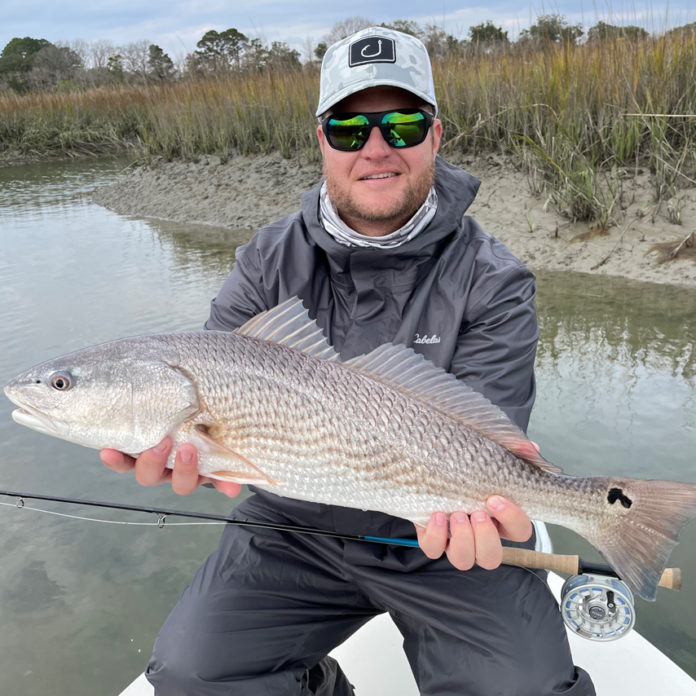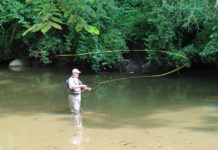Written by: Capt. Cleve Hancock, Brown Dog Sportfishing
All photos by Captain Cleve.
Redfish are well known for providing some amazing sight-fishing opportunities, from waving their tails in the flooded grass, to cruising shorelines with their backs out of the water. The opportunity to cast at reds under these ideal conditions is a thrilling and coveted experience in itself.
But sometimes variables such as tide, sunlight, or temperature just aren’t conducive to shallow-water feeding, and the fish stay deep all day. Many fly anglers will simply overlook these deep fish, which may be a mistake, since they can indeed be caught.

When targeting redfish in 5 to 10 feet of water, a full intermediate sinking line can make all the difference. Not only does it help to pull the fly down deep, but it also helps to keep it down during the retrieve. When you use a weighted fly with floating line, the fly is pulled toward the surface with each strip.
When using an intermediate sink line, I try to focus my casts on three specific areas:
1. Deeper holes
Holes at the confluence of creeks, or a deeper bend in a shallow creek, can be perfect places for redfish to sit as they wait for food to fall toward them. Getting a fly down here can be crucial to imitating the natural flow.

2. Structure
It should come as no surprise that redfish love structure. Whether it’s a fallen tree, dock, or other hiding place, these fish will set up on structure in numbers. Getting a fly down around these deeper targets can put you right in the strike zone.
3. Oyster bars at high tide
The same oyster bar the redfish were tailing on during low tide can still hold fish at higher tides as well. Getting a fly down and around the now-submerged bars can still give you a shot at those fish.
Capt. Cleve Hancock is owner and operator of Brown Dog Sportfishing in Charleston, South Carolina.
Credit: Source link































